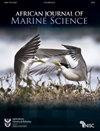西非贝宁移徙渔民小型远洋渔业的特点及其社会文化影响
IF 1.4
4区 生物学
Q3 MARINE & FRESHWATER BIOLOGY
引用次数: 0
摘要
小型远洋鱼类对发展中国家当地社区的粮食安全和生计作出了重大贡献。在西非,特别是在贝宁,小型远洋渔业吸引了许多移徙渔民,他们是该部门的关键行动者。本研究使用定性方法评估了贝宁小型远洋渔业的特征和社会文化影响,包括焦点小组讨论(n = 9)、深度访谈(n = 35)、文献综述、直接观察和二手数据。调查结果显示,贝宁的土著渔民和加纳的外国渔民是在贝宁从事小型远洋捕鱼的两个主要移徙渔民群体。这些渔民主要使用三种渔具:刺网、围网、鱼钩和鱼线。2014-2018年期间,年捕捞量在1123至2040吨之间波动,2018年达到峰值,商业价值为3030587欧元。除了流动渔民外,鱼贩是价值链的另一个重要支柱。贝宁该部门移徙渔民之间的冲突与登陆费和渔具有关。我们讨论了迫切需要通过定量研究和执法来关注该部门,以确保其可持续性。本文章由计算机程序翻译,如有差异,请以英文原文为准。
Characteristics and sociocultural impacts of small pelagic fishing by migrant fishers in Benin, West Africa
Small pelagic fish species contribute substantially to the food security and livelihoods of local communities in developing countries. In West Africa, and particularly in Benin, small pelagic fisheries attract many migrant fishers who are key actors in the sector. This study assessed the characteristics and sociocultural impacts of the small pelagic fishery in Benin using qualitative approaches, including focus group discussions (n = 9), in-depth interviews (n = 35), a literature review, direct observations and secondary data. The findings showed that indigenous fishers from Benin and foreign fishers from Ghana are the two major groups of migrant fishers involved in small pelagic fishing in Benin. These fishers mostly use three categories of fishing gear: gillnets, seine nets, and hooks and lines. Over the period 2014–2018 the annual catch fluctuated between 1 123 and 2 040 tonnes, with the peak catch recorded in 2018, with a commercial value of €3 030 587. Apart from migrant fishers, fishmongers constitute another important pillar of the value chain. Conflicts among migrant fishers in the sector in Benin are related to landing fees and fishing gears. We discuss the urgent need to give attention to the sector through quantitative research and law enforcement to ensure its sustainability.
求助全文
通过发布文献求助,成功后即可免费获取论文全文。
去求助
来源期刊

African Journal of Marine Science
生物-海洋与淡水生物学
CiteScore
2.60
自引率
16.70%
发文量
17
审稿时长
6-12 weeks
期刊介绍:
The African (formerly South African) Journal of Marine Science provides an international forum for the publication of original scientific contributions or critical reviews, involving oceanic, shelf or estuarine waters, inclusive of oceanography, studies of organisms and their habitats, and aquaculture. Papers on the conservation and management of living resources, relevant social science and governance, or new techniques, are all welcomed, as are those that integrate different disciplines. Priority will be given to rigorous, question-driven research, rather than descriptive research. Contributions from African waters, including the Southern Ocean, are particularly encouraged, although not to the exclusion of those from elsewhere that have relevance to the African context. Submissions may take the form of a paper or a short communication. The journal aims to achieve a balanced representation of subject areas but also publishes proceedings of symposia in dedicated issues, as well as guest-edited suites on thematic topics in regular issues.
 求助内容:
求助内容: 应助结果提醒方式:
应助结果提醒方式:


